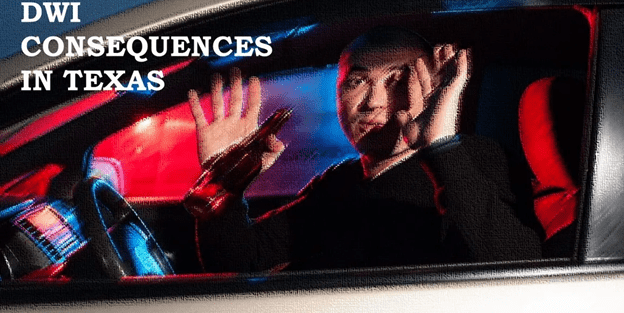Texas DWI Penalties
Texas is one of the toughest states when it comes to consequences related to Driving While Intoxicated. While a DWI conviction can mean jail time or probation, there are additional consequences that kick in as soon as a person is placed under arrest for DWI. This can include a license suspension and expensive fees. While it is possible to hire a defense attorney to argue against these charges in court, in some cases, a person can face penalties even if they are not convicted.
License Suspensions
When a driver is pulled over for suspicion of DWI in Texas, the officer who makes the traffic stop may ask the driver to perform a field sobriety test. This can involve certain physical and verbal tasks like reciting the alphabet or walking heel-to-toe in a straight line. If the officer believes that the driver fails these tests, the officer may ask the driver to submit to an alcohol test. This can take two forms:
- A breath sample collected from the driver
- A blood sample collected at a hospital or medical facility
A driver who’s test results show a blood alcohol concentration higher than .08 may be arrested and charged with driving while intoxicated. Their license may be automatically suspended for 90 days up to a maximum of 180 days. In fact, the arresting officer may confiscate the driver’s license at the time of the arrest.
Texas has what’s called “implied consent” laws, meaning that all drivers agree to submit to alcohol tests when asked by police officers. However, a driver may refuse to submit to either a breath or blood test. If this happens, the driver will automatically have their license suspended for a period of 180 days, regardless of the outcome of their case.
Other Penalties
A license suspension isn’t the only consequence that drivers who are convicted of Driving While Intoxicated can face. A conviction for this offense can also lead to:
- Incarceration in county jail for a period of 72 hours up to 180 days
- A fine of up to $2000
- An annual surcharge of $1000 for three years after conviction
- Mandatory installation of an ignition interlock device
- Mandatory attendance at alcohol treatment programs
In most cases, the judge may order that the defendant must undergo a drug and alcohol evaluation. These tests are performed to detect the presence of substance abuse problems. A defendant who appears to have a substance abuse problem may be forced to attend additional counseling or drug treatment programs.
The fines that are levied are in addition to a DPS surcharge. For a first-time offense, this surcharge is $3000 split up over three years’ worth of payments. This is perhaps the most expensive part of a DWI conviction.
In some counties, a judge may order a defendant to obtain an ignition interlock device as a condition of bond. This device prevents a driver from starting a vehicle without first providing a breath sample. A breath sample which contains traces of alcohol will not be able to bypass the device. Although this condition is not always required for first-time offenders, second-time offenders will almost always have to abide by this requirement.
Legal Defenses
Hiring a qualified, experienced defense attorney after being charged may present additional options to a defendant. For example, a defendant must request an Administrative License Revocation hearing within 15 days after being arrested. A defense attorney may be able to present evidence at this hearing to prevent the defendant’s license from being suspended. And attorney may also be able to obtain an Occupational License for their client.
A defense attorney may also be able to argue at trial that the arresting officer in the case was improperly trained or made a mistake while collecting a breath sample. The attorney may also introduce evidence to show that the breathalyzer was improperly calibrated. If these tactics are successful, the court may agree to drop the charges or offer a plea bargain to a less serious offense.


